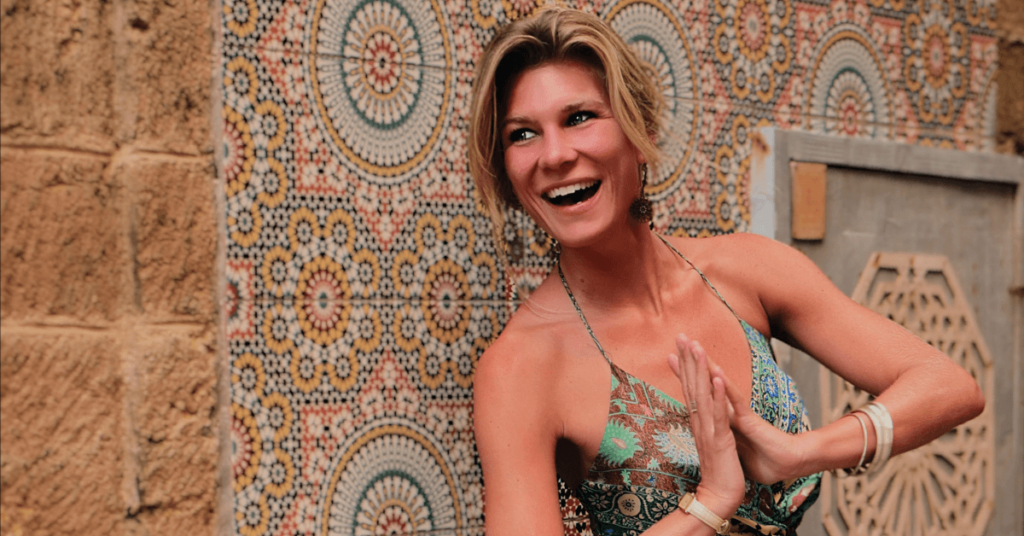You might think that money, success, power, popularity or a partner bring you happiness. And even though they fill up your heart with joy, these external and superficial ‘things’ only bring you temporary satisfaction. The key to your happiness is a combination of three things: pleasure, strengths and fulfilment.
To find out in which things you find these three key elements you could ask yourself what you’d do if you only had one more month to live, or a week, or a day, or a few hours. This thought might sound surrealistic, but ask yourself and take a minute to think about your answer. ‘What would you do if you only had a limited time to live?’ Or: ‘If you died now, what regrets would you have about the way you are living (your life) now?
The answer to these questions are the things that you’re bringing into action today, not tomorrow, next week or whenever you have time; TODAY!
Did you answer you wanted to have more time with your parents? Then go visit them. If you can’t, video call them. If you wrote down you would have wanted to be more creative or write a book, start today. Studies have shown that if you do something that brings you pleasure, in which you can use your strengths and find fulfilment at least once a week, you’ll experience significantly more happiness and satisfaction in your life.
Some handy definitions to find the keys to your happiness:
Pleasure:
What do you enjoy the most? Now, don’t tell me that it’s ice-cream or a morning of self-care. We all do! And though there’s nothing wrong with that, I’d like you to become curious about your deepest senses of pleasure. Ask yourself: ‘What do I truly desire?’. Write down your answer or say it out loud. If you don’t have an answer, repeat. Repeat today, tomorrow, the day after or as long as you need to find your answer to where you find true pleasure.
Strengths:
Your strengths are your superpowers. Focus on your strengths instead of improving your weaknesses. Working on your weaknesses requires a lot of your energy and doesn’t get you much further. This doesn’t mean you can ignore your weaknesses, but spending time and energy on something that will only have little effect, is demotivating. Focussing on your strengths, however, isn’t only more enjoyable but you’ll also see true development straight away and it provides you with the possibility of becoming an expert in your particular strength. When choosing what strengths you want to focus on, consider the following questions:
- ‘Does it inspire me and give me energy?’
- ‘Do I experience personal growth when I use it?’
- ‘Do I consider this strength part of me?’
If all of these questions have a positive outcome. You may well have found your answer to your ‘calling’ – read down below.
If you find it difficult to name your strengths, have a look at VIA Character Strengths. They have a fun, free test for you to find out your biggest strengths.
Fulfilment:
A feeling of satisfaction you experience when you live up to your values. Your values are the things that give you meaning and you find truly important. You don’t create values; you have them. If you don’t know them, you’ll need to uncover them.
Be curious: talk with others, write and journal, think of the things you would want to be remembered for. In the end, it always comes down to ‘having made a positive impact in someone’s life’. Whether it’s teaching or providing someone with their perfect pair of shoes, we all have our own ‘calling’.
It is important to keep a balance between pleasure, strengths and fulfilment. Focusing too much on one of them actually works counterproductively. When you spend an equal amount of time on these three elements, you get into the so-called ‘flow’. This same flow is used to describe your yoga class!
Yoga flow:
Yoga Flow: Fluid and dynamic movement through asanas combined with a focus on the breath which generates a meditative state and feeling of presence or being in the present moment.
Flow (as used in mindfulness training): where pleasure, strengths and fulfilment meet.
Psychologist Csikszentmihalyi researched the concept of flow and came to the conclusion of six components:
- Intense focused concentration in which time seems to go as fast as it is slow.
- Intense presence and motivation in which you find true pleasure in what you’re doing.
- Merging of action and awareness: not thinking of the end-goal but carrying out the steps.
- Loss of self-consciousness: you’re not distracted by anything or anyone.
- Sense of control over the situation or activity, but still having a clear goal.
- Balance between pleasure, strengths and fulfillment: it’s not super easy, but not too challenging.
How do you get into this flow?
Flow exists, but it’s not up for grabs. However you can create your own flow by living up to your values and train your awareness and mindfulness on a regular basis. Focus on what you have now and enjoy the process, instead of listing all the things you want to achieve and getting frustrated with yourself because you haven’t done them yet.
Create more flow in your life and business, today...
- Take the quiz: What business model suits you?
- Watch the webinar: From Teacher to Business Owner: The Key to Purposeful Entrepreneurship
- Check out the course: Build Your Business Foundations
And book your free discovery call to gain clarity and create an action plan to achieve your business goals.


